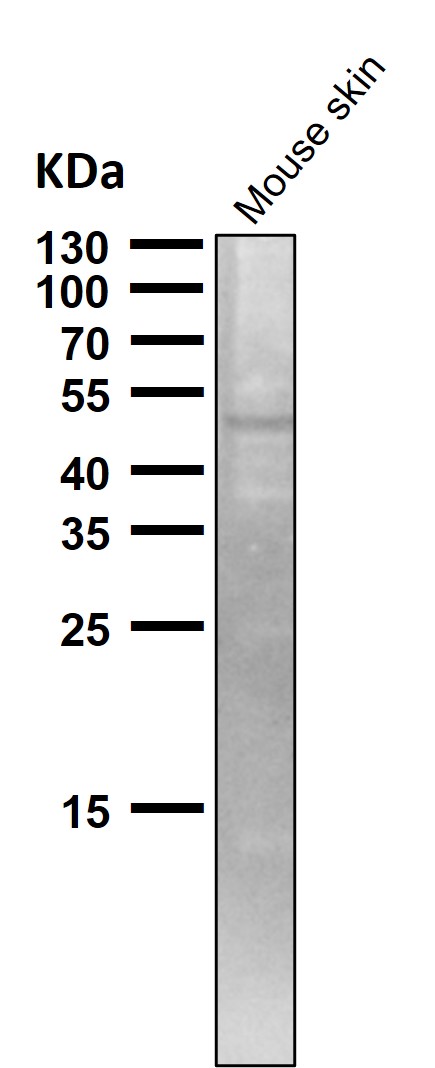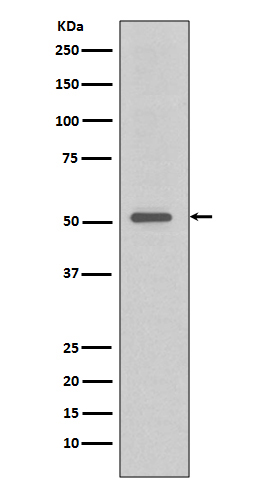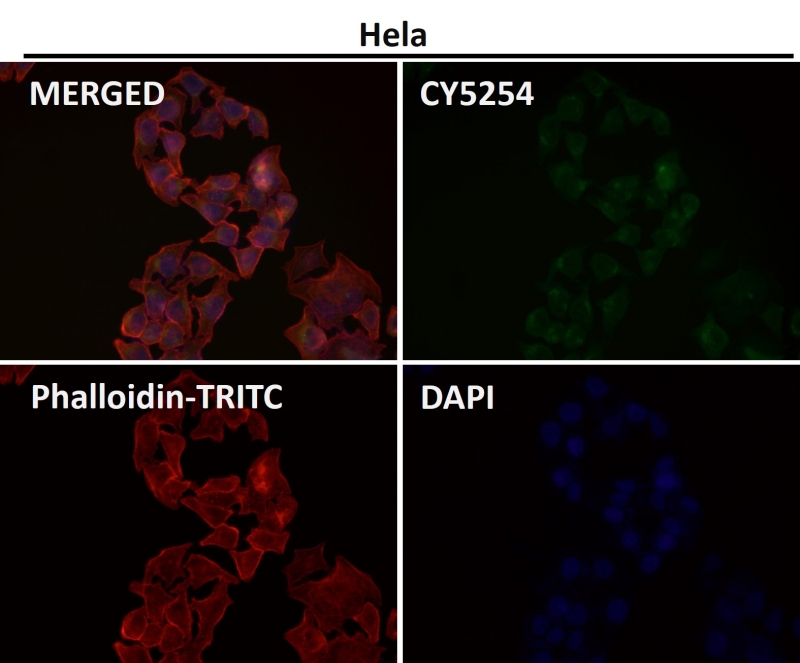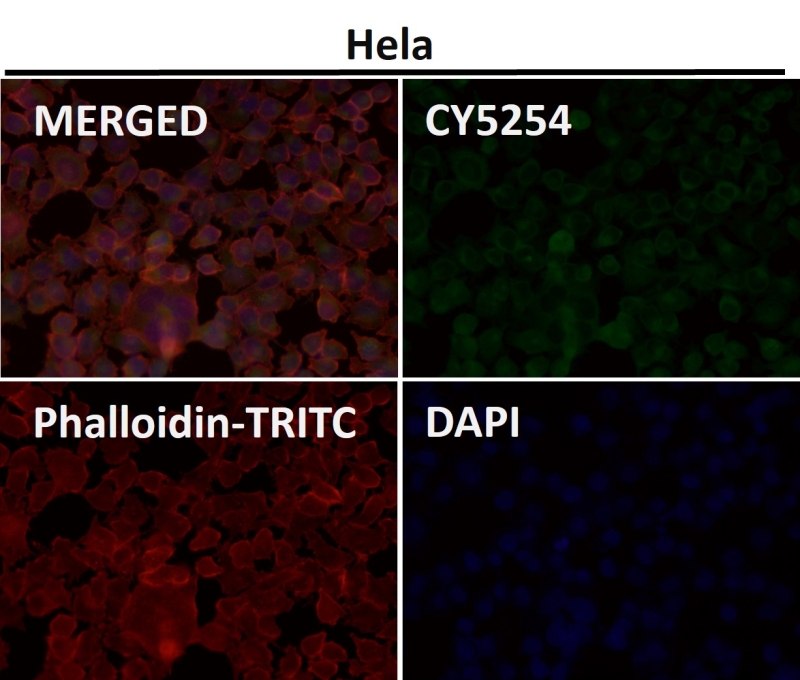



| WB | 咨询技术 | Human,Mouse,Rat |
| IF | 咨询技术 | Human,Mouse,Rat |
| IHC | 咨询技术 | Human,Mouse,Rat |
| ICC | 1/50-1/200 | Human,Mouse,Rat |
| FCM | 1/20-1/100 | Human,Mouse,Rat |
| Elisa | 咨询技术 | Human,Mouse,Rat |
| Aliases | MLN 62; RING finger protein 83; TRAF4; CART1; MLN62; RNF83;TRAF4 |
| WB Predicted band size | 54 kDa |
| Host/Isotype | Rabbit IgG |
| Antibody Type | Primary antibody |
| Storage | Store at 4°C short term. Aliquot and store at -20°C long term. Avoid freeze/thaw cycles. |
| Species Reactivity | Human,Mouse |
| Immunogen | A synthesized peptide derived from human TRAF4 |
| Formulation | Purified antibody in PBS with 0.05% sodium azide,0.05% BSA and 50% glycerol. |
+ +
以下是关于TRAF4抗体的3篇参考文献及其简要摘要:
---
1. **文献名称**: *TRAF4 promotes the proliferation and invasion of breast cancer by regulating the stability of BARD1*
**作者**: Li Y, et al.
**摘要**: 该研究通过免疫组化(使用TRAF4特异性抗体)和功能实验发现,TRAF4在乳腺癌中高表达,并通过稳定BARD1蛋白促进肿瘤增殖和侵袭,提示其作为乳腺癌治疗潜在靶点。
---
2. **文献名称**: *Structural basis of TRAF4 ubiquitin ligase function in cancer signaling*
**作者**: Li C, et al.
**摘要**: 通过X射线晶体学和Western blot(使用TRAF4抗体验证蛋白表达),研究揭示了TRAF4的RING结构域介导的泛素化机制及其在肿瘤坏死因子(TNF)信号通路中的促癌作用。
---
3. **文献名称**: *TRAF4 modulates neuronal apoptosis and neuroinflammation in Alzheimer's disease models*
**作者**: Wang X, et al.
**摘要**: 研究利用TRAF4抗体进行免疫荧光和免疫沉淀实验,发现TRAF4通过调控NF-κB通路影响神经元凋亡和神经炎症,可能参与阿尔茨海默病的病理过程。
---
**备注**:以上文献为示例,实际引用需根据具体研究补充完整信息(期刊、年份、DOI等)。如需更多文献,建议在PubMed或Google Scholar中检索关键词“TRAF4 antibody”或“TRAF4 function”。
TRAF4 (TNF receptor-associated factor 4) is a member of the TRAF protein family, which plays critical roles in signal transduction pathways, particularly those involving TNF receptors, Toll-like receptors (TLRs), and cytokine receptors. Unlike other TRAF proteins (e.g., TRAF2. TRAF6), TRAF4 is often associated with both canonical and non-canonical signaling, regulating processes like cell proliferation, apoptosis, immune responses, and stress responses. It is implicated in cancer progression, neurological disorders, and developmental defects due to its involvement in NF-κB, MAPK, and Wnt signaling pathways.
TRAF4 antibodies are essential tools for studying its expression, localization, and function. These antibodies are widely used in techniques such as Western blotting (WB), immunohistochemistry (IHC), immunofluorescence (IF), and immunoprecipitation (IP). Researchers rely on their specificity to distinguish TRAF4 from other TRAF family members, as cross-reactivity can complicate interpretations. Commercially available TRAF4 antibodies are typically raised against conserved regions (e.g., C-terminal TRAF domain or N-terminal zinc-binding domains) and validated in human, mouse, or rat samples.
In research, TRAF4 antibodies have revealed its overexpression in cancers like breast, lung, and prostate tumors, where it promotes epithelial-mesenchymal transition (EMT) and metastasis. Dysregulation of TRAF4 has also been linked to neurodevelopmental disorders, highlighting its diverse roles. Validating antibody specificity using knockout controls or siRNA knockdown remains critical to ensure reliable experimental outcomes.
×